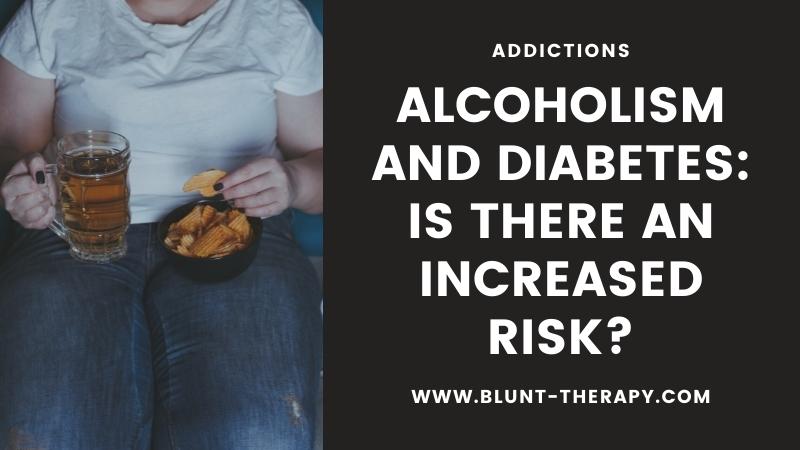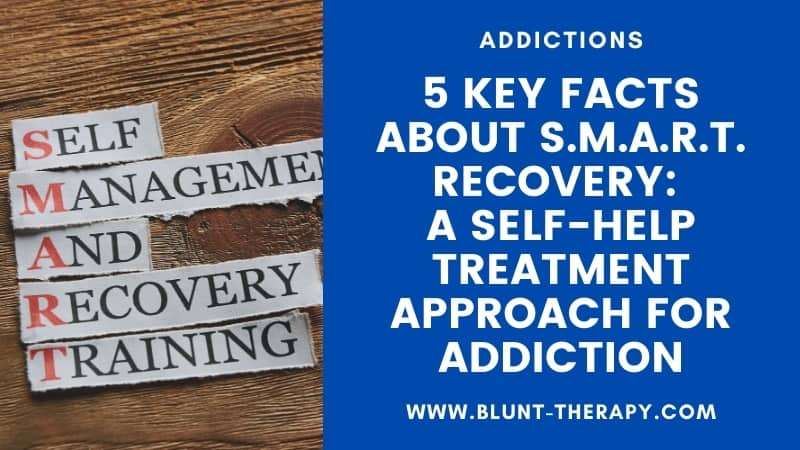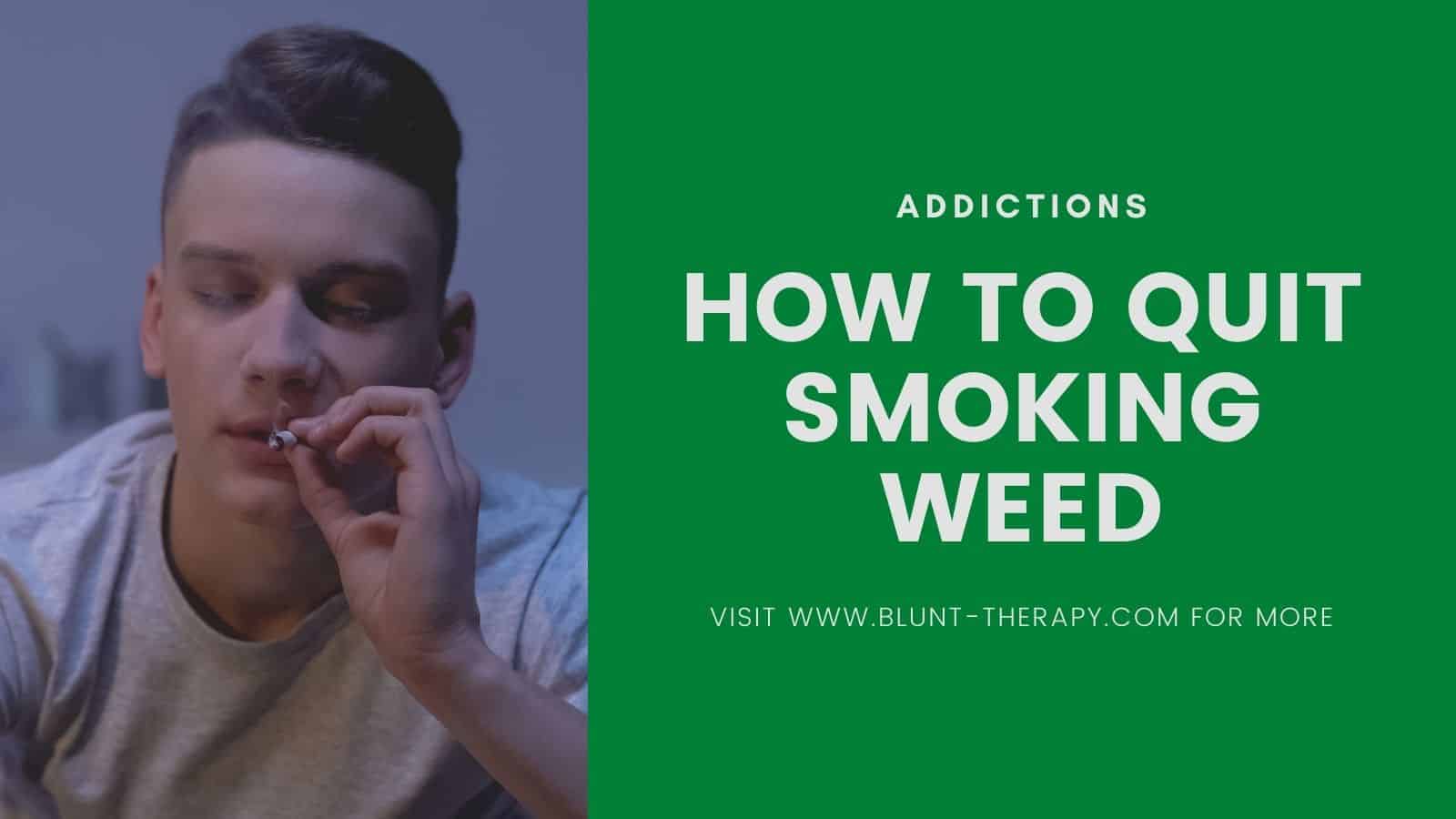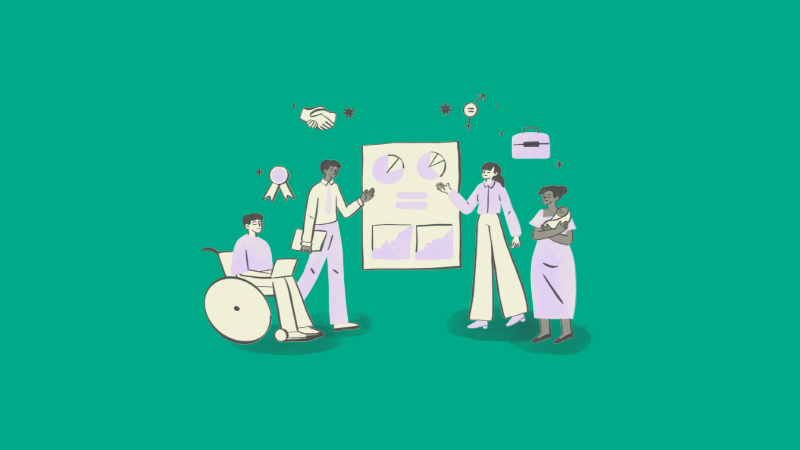Table of Contents
Affiliate link notice: As an affiliate of BetterHelp and other third-party vendors, We will receive compensation if you make a purchase using the links provided on this page. For more information, visit our disclosure page.
Last Updated on December 14, 2021 by Randy Withers, LCMHC
Drug and alcohol addiction ruins millions of lives every year.
If your goal is to help an addict recover from this disease, there’s some important information you need to know before you begin.
Let’s start with a reality check:

1. Most People Don’t Understand Addiction
Even people who struggle with addiction don’t understand it very well. One reason there’s so much confusion is due to social and cultural perceptions of it.
Consider how we look at tobacco use in The United States.
More Americans use tobacco (50 million) than there are citizens of Canada (37.6 million).
Crazy, right?
That’s nearly 1 in 7 people. And every year, 480,000 people die from tobacco-related illness and disease.
Let’s now take a look at alcohol abuse, which is also vast.
According to a 2018 study on alcohol use, more than 15 million people in America struggle with Alcohol Use Disorder every year. That’s 1 in 8 adults, with about 88,000 dying from alcohol use every year.
As a society, we know that tobacco is a nasty habit. We know that alcohol abuse can cause all sorts of problems, from DUI’s to domestic violence.
But when was the last time you heard someone use either “tobacco addict” or “alcohol addict” to describe the problem?
The point here is that we tend to associate addiction with illicit substances. But the truth is that tens of millions struggle with alcohol and/or nicotine addiction, and more than 550,000 people die every year as a result.
If you want to help an addict recover, start with changing the way you think about addiction.
Addiction is a complicated and bizarre disease that affects drug users and non-drug users alike. Eating disorders are addictions. Self-harm is an addiction. Gambling, sex, porn, food, and even Internet use can turn into addictions.
There are millions of addicts who have never touched drugs or alcohol. The problem is far bigger than you think.
2. What Addiction Is (and Is Not)
The public misunderstands what addiction even means. It’s not a synonym for “bad habit,” nor are drugs and alcohol the only things to which one can get addicted. Here’s a definition accepted by addictions professionals:
Addiction is the repeated involvement with a substance or activity, despite the substantial harm it now causes, because that involvement was (and may continue to be) pleasurable and/or valuable.
Source
Addiction, by definition, is harmful to the addict in at least one life domain. Here are some practical examples:
- Occupational: addiction causes job loss, problems with productivity, interpersonal conflicts, etc.
- Social: addictive behaviors ruin romantic, familial, or platonic relationships.
- Financial: addiction is expensive. Addicts frequently forego bills to finance their drug use.
- Legal: addictive behaviors are often illegal (i.e., possession of illicit substances).
- Psychological: Prolonged substance use can worsen anxiety, depression, suicidal ideation, and psychosis.
- Physical: Sustained substance abuse results in an array of physical health problems, from poor sleep to life-threatening diseases.
Some of these problems are easy to spot; some are not. It’s important to keep in mind that not all addicts look and act the same.
Plenty of so-called “high-functioning” addicts can maintain a job, go to the gym, and pay their bills. But they might be compromising their mental and physical health, which is often hard to see in others.
3. Addiction is an Actual Disease
It may not look like a disease, but every major medical association in the United States says it is.
It is not a moral failing or a character flaw. It’s more like a computer virus that ransacks your ability to make good decisions.
Humans have a hierarchy of needs, with things like air and water and shelter at the top of the list. Addiction tricks the brain into thinking that drugs are more important than these needs. That’s why addicts often behave in such dangerous and confounding ways.
Addiction is cunning and complicated, so it might help to think of it as an allergic reaction. For addicts, their drug is like poison ivy. If they get around it, they will use, consequences be damned.
If you or someone you love suffers from addiction, you have to get on board with the disease model of addiction. Traditional views of ethics and morality mean nothing to the addicted brain. If you want to help an addict recover, you need to understand that addiction is a disease.
In reality, drug addiction is a complex disease, and quitting takes more than good intentions or a strong will. In fact, because drugs change the brain in ways that foster compulsive drug abuse, quitting is difficult, even for those who are ready to do so. – National Institute on Drug Abuse
National Institute on Drug Abuse
Think about a disease like diabetes. While poor decisions can make diabetes worse, (i.e., a diet heavy with sugar), plenty of people are born with it. Through no fault of their own, they are born with a chronic, lifelong and often incurable disease.
It doesn’t matter how religious they are, or how much self-control they have, or where they went to school. They are diabetic from now until they die.
Addiction is similar. People are born predisposed to addiction and addictive behaviors. For some, the disease remains dormant. For others, it consumes everything they do.
4. Addiction is An Epidemic
The medical literature suggests that somewhere around 10% of the adult population suffers from some form of addiction. That’s 24 million people, a number equivalent to the entire population of Florida. And that’s just drug and alcohol addiction. Remember, people get addicted to all sorts of things.
Near as we can tell, that 10% number is consistent, too. A person’s intelligence, financial means, social class, education, or ethnicity doesn’t seem to have any bearing either. Addiction is an equal opportunity killer.
There are basically two types of addictions. The first involves substances, such as drugs and alcohol. If you’re curious, here are the top 6 substances people get addicted to, in terms of numbers of people affected:
- Tobacco: 50 million people in the US.
- Alcohol: 15 million people in the US.
- Opiates: 2 million people in the US.
- Methamphetamine: 1.5+ million people in the US.
- Sedatives/Tranquilizers: 1 million people in the US.
- Cocaine: 900,000 people in the US.
We call the second type a “process addiction.” These are behaviors such as gambling, overeating, workaholism, and self-harm, though that list is far from exhaustive. Some points worth noting:
- Over 12 million people in the US struggle with compulsive buying disorder.
- Sex-addiction affects 3-6% of the population.
- Pathological gambling affects upwards of two million adults in the US.
- Internet addiction is on the rise, too, with some estimates claiming that over 400 million people worldwide struggle with it.
Movies would have you believe that addiction looks like the hoodie-wearing thug begging for a fix, but doctors, lawyers, captains of industry, and beauty queens are just as likely to be addicts as anyone else.
If you want to help an addict recover, avoid judgmental attitudes and preconceived notions, as the disease is far more common than anyone is comfortable admitting.
And if you love an addict, it’s important to remember that stigma has driven many of their behaviors underground, meaning that many addicts are skilled experts at deception. Never assume you know what is going on in an addict’s mind because you don’t.

5. Addiction is NOT a Choice
Addicts are not responsible for their addiction, but they are responsible for their recovery. This is a sentiment central to support groups like Narcotics Anonymous.
90% of people who use drugs and alcohol don’t become addicted. Millions of people experiment with alcohol and illicit drugs every year; most never become addicted. Nobody becomes an addict by choice. It happens without warning.
Addiction uses many tools to keep its victims sick. One of them is denial, a form of delusion that prevents a person from accepting the reality of a situation. If you know what to look for, it’s easy to spot.
Here are some common examples:
- Blame-shifting: It’s everyone else’s fault but mine I use.
- Justification: My drug of choice helps with my ________.
- Rationalization: Hey, at least it’s not _________/
- Minimization: I only used/drank (insert measurement).
- Equivocation: My drug is the same as _______________.
- Defensiveness: How dare you accuse me of ____________.
The problem with denial is not that addicts use it to justify their use to other people. The problem is that they use denial to justify it to themselves.
Many if not most addicts are unaware of the progression of the disease until it is too late. Often, it takes a jarring event like an arrest or a job loss before they realize how bad their situation has become.
Regardless, nobody makes the choice to become an addict. And nobody uses alcohol or drugs with the intention of causing harm to themselves, their friends, or their families.
6. Most Addicts Self-medicate
Most people don’t understand that addiction has little to do with drug use. The Basic Text of Narcotics Anonymous addresses this point in the chapter titled “Am I an Addict?”
“Addiction is a disease that involves more than the use of drugs. Some of us believe that our disease was present long before the first time we used.”
This point is not without controversy. Try telling a heroin addict on their third day of withdrawal that drug use is a small part of addiction. It won’t go over well.
Addiction is far more complicated than we’d like to believe. And recovery from drug addiction requires far more than just the absence of using.
According to The National Institute of Mental Health, 45% of people with a substance use disorder have a co-occurring mental illness. That means that roughly half of all addicts are suffering from a debilitating condition such as clinical depression, panic disorder, or post-traumatic stress disorder.
Most people will go to extraordinary lengths to avoid pain, be emotional, physical, or psychological. For some, the pain leads them to drugs and alcohol.
Psychological pain is the worst of the three. Depression, trauma, and loneliness drive many to suicide. And the thing about drugs and alcohol is that they do a marvelous job of numbing that pain. For a while, at least.
Drug and alcohol use are symptoms of a much larger problem. In fact, exploring that problem is a fundamental component of long-term recovery. Exactly what that problem is though depends on the individual.
If you want to help an addict recover, you must have empathy. Recovery from drug addiction is the hardest thing a person will ever do.
7. We Do Recover (with Support)
Recovery from drug addiction is daunting. I did it back in 2005, and it was the hardest thing I’ve ever done. Ask any addict. They’ll tell you the same thing.
In my experience, the number one predictor of long-term recovery is support from friends and family. It is possible to recover from addiction in isolation, but I wouldn’t recommend it for any reason. There are two reasons support is critical:
First, addicts feel isolated, alone, misunderstood, and abandoned. Whether this is true is beside the point. I’m talking about how they feel.
Isolation tortures humans. We are naturally social animals, with an inherent need to feel accepted by the society in which we live. Addicts do not feel like they are part of the “normal” community of functioning people. This is a side effect of the disease, but an important one to understand if you want to help an addict.
This is a fantastic Ted Talk about the subject:
The second reason support from family and friends is important is accountability. As in, my actions are accountable to a group of people who are looking out for me.
This is the basic premise of 12-Step organizations like SMART Recovery and AA.
For many who are in recovery, the line between groups like AA and actual family becomes indistinguishable. This is by design, and if you want to help an addict recover, you need to encourage meeting attendance.
They don’t work for everyone, but we have yet to find a one-stop solution for literally anything in the connected fields of mental health and addictions, so this should in no way dissuade you from encouraging friends and family members to attend.
We have to use what is available to us. If you have the money to attend groups run by a trained addiction professional like myself for nine hours a week, then that’s what I’d recommend. But most people don’t have the financial resources to stay in intensive therapy indefinitely.
Final Thoughts
Learning how to help an addict recover – especially if you love them – is a daunting task.
It’s also a long-term commitment that can take months if not years. If you can try to see addiction as analogous to cancer or diabetes, it helps. We’re talking about deadly, lifelong, chronic conditions. It’s important to keep this in mind.
The thing you need to remember is that you don’t know what an addict will need to find the right path to recovery. They might NEED to be arrested. They might NEED to spend a week in a psychiatric hospital. It’s not up to you.
The only constant here is your support.
Support does not mean that you let an addict get away with problematic behavior. Support does not mean that you feed them cash to sustain their habit. Support is anything you can offer that keeps them safe, connected, and away from drugs and alcohol.
There is a great deal of information available to you online. Talk to your doctor and ask for a referral to a substance abuse treatment center in your area. Most cities and towns have free or low-cost substance abuse treatment services. In my experience, getting into one of these programs is easy. Don’t put this off. Get your loved one into treatment immediately.
Also, don’t ignore the benefits of individual therapy. Whether you are an addict or trying to help someone who is addicted, professional support is both strongly advised and encouraged.
Helpful Support Sites
- Narcotics Anonymous Meeting Search
- Alcoholics Anonymous Meeting Search
- SMART Recovery Meetings
- Al-Anon Family Groups
- Adult Children of Alcoholics
- Cocaine Anonymous
- Secular Organizations for Sobriety
- Women for Sobriety
References
- Smoking and Tobacco Use: Fast Facts
- One in eight American adults is an alcoholic, study says
- Nicotine Addiction and Abuse
- Statistics on Addiction in America
- Illicit Drug Use: Fast Facts
- Science Says: Addiction Is a Chronic Disease, Not a Moral Failing











This is a great article that really separates the wheat from the chaff in terms of information about addiction. Thank you.
Thanks for your feedback! Glad you liked it.
I enjoy reading a post that will make people think.